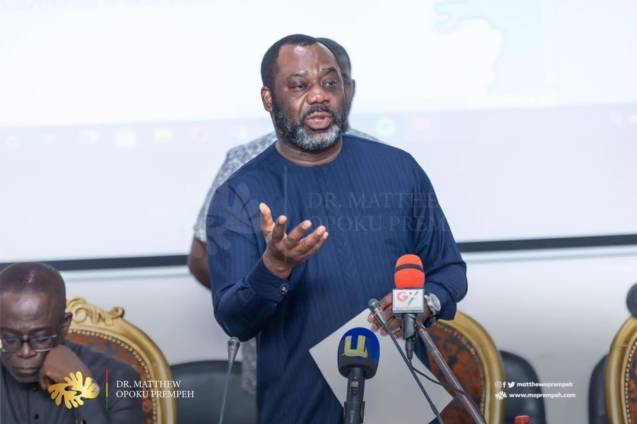Ghana's National Energy Transition Plan is gaining traction as the Transport and Energy Ministries commit to implementing it.
A joint team from the two ministries has been engaging with the National House of Chiefs in Kumasi in order to optimize their lobbying efforts.
The goal of the consultative gathering was to get feedback from traditional leaders on how to proceed with Ghana's transition to renewable energy.
To achieve a net-zero objective, the National Energy Transition Plan aims to transition the usage and patronage of high-carbon emitting sources to cleaner ones.
Energy Minister, Dr. Matthew Opoku Prempeh, acknowledged the deteriorating consequences of fossil fuel energy and stated that the strategy will help to limit the effects of global warming. "Nothing except global warming is causing changes in rainfall patterns."
"Food security, employment security, and human existence or life are all under jeopardy," he declared.
Ghana's fossil fuel energy consumption was 52.5 percent in 2014, growing at a 5.83 percent annual pace.
According to DVLA data, 72 percent of Ghana's 2.8 million registered cars run on gasoline, while 27 percent and less than 1% run on diesel and LPG, respectively. The government is developing eco-friendly public transportation and regulations, according to Deputy Transport Minister Frederick Adom, to prevent the impact of 1.5°C global warming.
"As the Transport Ministry, we remain steadfast in our commitment to promote and preserve ecologically friendly, responsive transportation systems." It's possibly one of the most important and urgent steps toward a net-zero future.
"We're concentrating on the technical transition away from gasoline and diesel fuels toward a more refined alternative. "We're working on an e-mobility policy to oversee the country's deployment and scale-up of electric cars," he added.
Ghana's commitment to SDG7 looks to be gloomy as the Sustainable Development Goals approach their conclusion. Some locals have expressed their displeasure with the government's decision to introduce clean and inexpensive electricity.
Kwame, a phone accessory manufacturer, praised the idea and predicted that it will help to save the economy.
"I think it's a good idea to try to reduce the effects of carbon emissions, which are steadily degrading the ozone layer and causing more harm to the ecosystem," he added.
They are, however, urging the government to construct more electric pump stations if this proposal is implemented.


